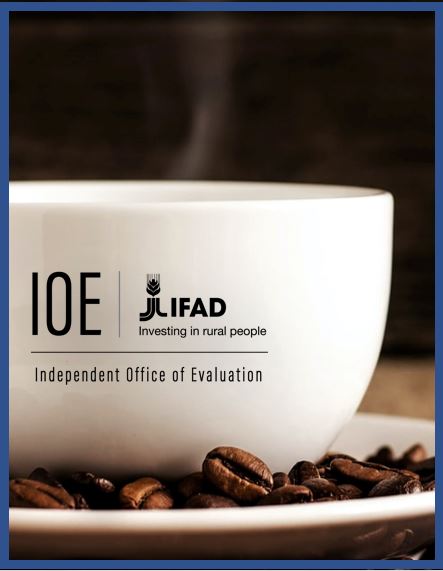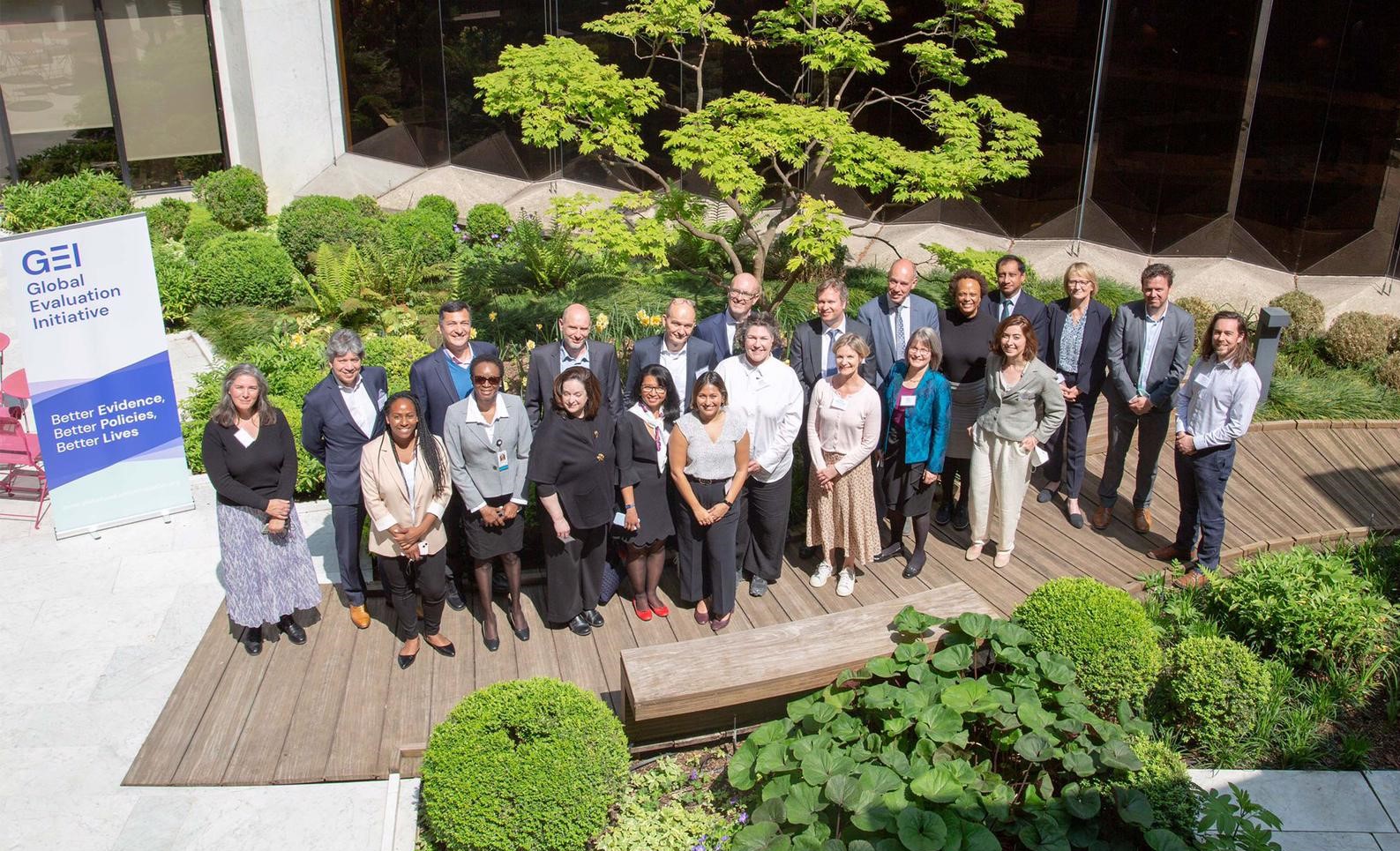Performance appraisal and feedback myths debunked - IOE
Rome, 21 April 2022 – On the surface, many evaluators feel that all that is needed is for people to follow their advice, and positive change will come about. To a certain extent, this may even be true. However, there is more than meets the eye, as evidence suggests that 70% of organizational change methods fail. Why? To answer this question, the Independent Office of Evaluation of IFAD (IOE) invited Dr Srini Pillay to speak at a special session of its Coffee Talk series, on 21 April. And special it certainly was, with representatives of all three Rome-based UN agencies in eager attendance.
“When you are doing an evaluation, you want something to change for the better. Focusing on mindset rather than changing of behaviour, actually gives you twice the likelihood of being successful in this regard”, Dr Pillay explained.
In his talk, Dr Pillay introduced participants to 5 myths related to performance appraisal and feedback, and explained how each of these operates in the brain, and what alternatives people can seek if they want to achieve more effective transformations through their evaluations. What followed was a lively discussion on how these myths could impact the structure and delivery of the performance evaluation process.
“The presumed goal of an evaluator is to share research-based findings in an objective manner that is received and acted upon in the service of the greater good. On the surface it sounds really easy. You evaluate, you decide what’s write and wrong, you communicate that, the person makes the changes and everything changes for the better – the problem is, things don’t actually work that way”, Dr Pillay stated.
By their very nature, evaluations are meant to shine a light on the strengths and challenges that people face. While the goal may be to inspire change behaviour in the people who receive those evaluations, several bodies of research from the biological sciences indicate that the approach taken is often misfocused. Emphasizing weaknesses, flaws, or other shortcomings, or even trying to "fix" the problem has an opposite effect. Moreover, this approach will likely activate the Negative Emotional Attractor (NEA), which causes people to defend themselves and, as a result, to close down. Not exactly the desired outcome.
During the Talk, Dr Pillay also explained that people are more likely to reach a destination and appreciate the steps along the way if they are not just told what to do. Being told what to do crates weaker cognitive maps in the brain because there is no figuring out process that contributes to the plan. Furthermore, many studies have also demonstrated that strengths-based performance appraisal motivates people to change and align with goals much more than one that looks at strengths and weaknesses or weaknesses alone. While this does not mean that evaluators should just emphasize strengths, it does suggest that the feedback should highlight the capacity to grow that strength.
“The reality is that you are delivering evaluation findings from a very complex brain to a very complex brain”, Dr Pillay concluded.
Dr Srini Pillay is a world-renowned keynote speaker, lecturer, author, consultant and Harvard trained psychiatrist. He is known for combining “head and heart” (figuratively and literally) in an approach to personal development and goal mastery that blends science, spirituality, and horns-grabbing joie de vivre to combat the stresses faced by ambitious and high-achieving people in academia, business, and life.
For further information, please contact Alexander Voccia at [email protected]




